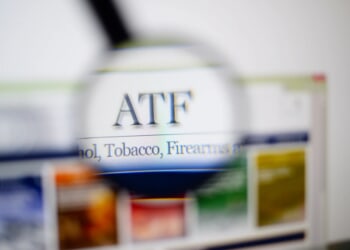Alberto Costa is the Conservative MP for South Leicestershire.
Most people first witnessed the chaotic underbelly of local government in 2021 when the now infamous phrase, “You have no authority here, Jackie Weaver,” echoed across the internet. That viral clip from a Handforth Parish Council Zoom meeting was a rare bit of comic relief during the pandemic.
Zoom council meetings briefly exposed the reality that some local councils, far from being models of democracy, are battlegrounds for petty tyrants.
Behind the laughter lies a grim reality: bullying, harassment, and misconduct, are rife in town and parish councils, eroding trust in politics and driving good people away from public service.
Parish clerks and councillors, often unpaid volunteers, are subjected to intimidation and bullying. The perpetrators face weak sanctions that lack any teeth. It’s hardly surprising, then, that in 2017, the Society of Local Council Clerks reported an average turnover rate for clerks ranging from 25 per cent to 30 per cent – a strikingly high figure compared to the UK’s typical employee turnover rate of 12 per cent to 15 per cent.
This year marks the 30th anniversary of the Nolan Principles, seven core values that should guide all public officeholders: Selflessness, Integrity, Objectivity, Accountability, Openness, Honesty, and Leadership. Yet, as Chair of the Standards Committee in the House of Commons, I see first-hand that elected representatives fall short. It is human to make mistakes and get frustrated. But severe misconduct and bullying that ruins lives is indefensible. Elected representatives are not immune to flaws, but they must be held to a higher bar. The current system, however, fails to enforce that standard at the grassroots of local government.
In my own constituency, parish councillors have endured months, even years, of verbal abuse and intimidation from their peers. In Leicestershire, a parish officer quit mid-meeting, broken by relentless harassment and vexatious complaints. These aren’t isolated tales. A 2017 report by the Society of Local Council Clerks found that 15 per cent of parish councils have serious behavioural issues, with five per cent rendered dysfunctional as a result. It’s a minority of “bad apples,” true, but they have a huge impact, and the system offers little recourse.
Where does it go wrong? Start with the Localism Act 2011. It lacks a clear definition of bullying or harassment, leaving Monitoring Officers to interpret vague Codes of Conduct. What is a crisis in one district is a shrug in another. Parish councils have no internal mechanism to investigate breaches, while principal authorities can’t impose meaningful sanctions short of criminal referral. The 2018 Ledbury Town Council fiasco, where over £200,000 in legal fees were racked up trying to discipline a councillor, laid bare the absurdity: parishes can’t act alone, and higher authorities are toothless. Accountability vanishes into a void.
The ballot box should be the ultimate check, but at this level, that’s a myth. In the 2015 parish elections, only 20 per cent of vacancies were contested. Not enough willing candidates, and not enough democracy. Rogue councillors often cling on, unchallenged.
As Labour pushes for unitary authorities – scrapping district councils and handing parishes more power – these flaws could get worse without reform.
So, what’s the fix? First, amend the Localism Act to clearly define “bullying.” Give Monitoring Officers a clear line in the sand, separating robust debate from harassment.
Second, mandate Standards Committees in principal authorities, staffed with Independent Persons to investigate and sanction impartially. Consistency and credibility would replace the current postcode lottery where standards committees are optional.
Finally, introduce real sanctions. Suspend councillors for up to six months for proven misconduct. At present, perpetrators of harassment get a weak slap on the wrist and can return to the next meeting and pick up where they left off. I’ve heard of entire councils resigning, powerless against one toxic individual. Suspension offers relief to victims and a message: actions have consequences.
New plans must avoid bureaucratic overreach and weaponised complaints – understandable concerns of the previous government. But doing nothing is not an option.
Parish councils matter. They are the roots of our democracy. But when dysfunction reigns, trust withers. Thirty years after the Nolan Principles, it’s time to ensure that these words are backed up by a robust framework.
During the pandemic, when meetings were held virtually and broadcast online, we glimpsed some of the issues facing parish councils. Perhaps it’s time to keep the cameras rolling for greater transparency. Sunlight, after all, is the best disinfectant.





![Jasmine Crockett Justifies Mass Illegal Immigration With Bizarre Argument [WATCH]](https://www.right2024.com/wp-content/uploads/2025/03/1742007023_Jasmine-Crockett-Justifies-Mass-Illegal-Immigration-With-Bizarre-Argument-WATCH-350x250.jpg)

![NYC Tourist Helicopter Falls into Hudson River, Siemens Executive and Family Among Those Killed [WATCH]](https://www.right2024.com/wp-content/uploads/2025/04/NYC-Tourist-Helicopter-Falls-into-Hudson-River-Siemens-Executive-and-350x250.jpg)


![Red Sox Fan Makes the ‘Catch of the Day’ with Unconventional ‘Glove’ [WATCH]](https://www.right2024.com/wp-content/uploads/2025/04/Red-Sox-Fan-Makes-the-‘Catch-of-the-Day-with-350x250.jpg)





